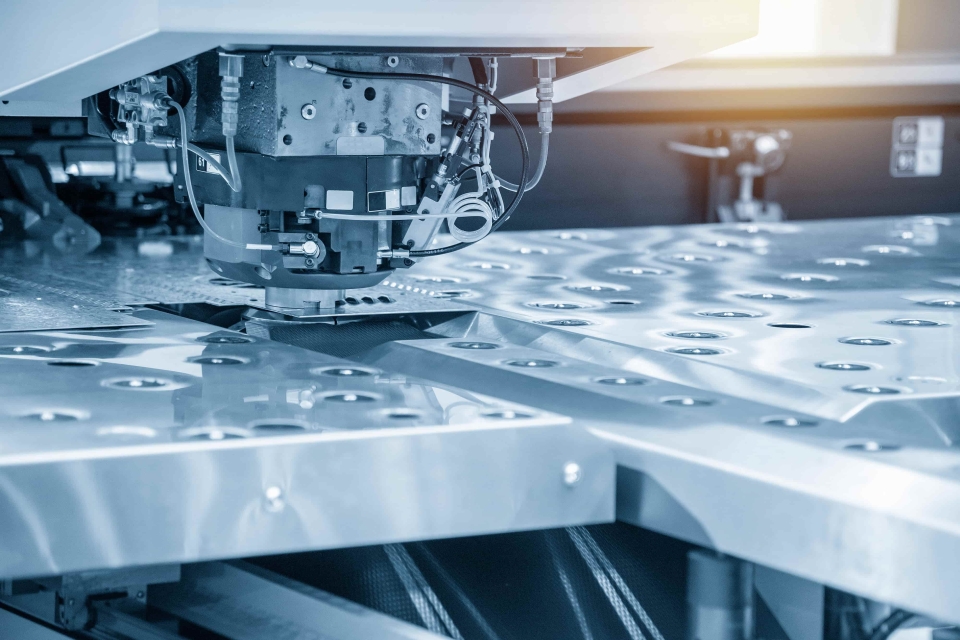Taiwan's Machinery Industry Hindered by Supply Chain and Pandemic Issues
2021/09/09 | By CENS
The machinery industry in Taiwan has been experiencing a five-month consecutive growth in the double-digits as of Taiwan Association of Machinery Industry's (TAMI) statistics released in June, rounding up the export value at USD$13.167 billion, a 27.5% annual growth. Figures indicate that the growth would continue despite the local COVID-19 outbreak in Taiwan.
As of writing, Taiwan is still amid the worst locally transmitted outbreak since the COVID-19 pandemic began last year, though cases appear to have tapered off by the end of June. Companies and local governments have been moving quickly to stem transmission and flush out cases through proactive screening measures. Much of Taiwan’s machinery capabilities are located in central Taiwan, specifically Taichung City, compared to the island's financial sector in the Greater Taipei area, which saw the most cases since May.
However, TAMI Chairman Larry Wei warned in late May that should the Taiwan dollar’s exchange rate to US dollars exceed NTD$27.5, all the progress and profits could be wiped clean due to exchange loss. To build up resilience, many domestic machinery suppliers have opted to filter incoming orders, Wei said, pointing out that these companies would rather ensure these orders are profitable, rather than focusing on sales targets. It was another example of how the pandemic has changed not only consumer behavior, but also companies taking in orders.
In certain cases throughout Q1-Q2, Wei reported that some suppliers have already lost profits due to the exchange loss, lamenting that they did not make any gains even when delivering the orders.
Machinery manufacturers are also feeling the squeeze from rising prices, ranging from essential raw materials such as steel and copper to cardboard used to deliver the products, which reportedly rose at least 30%. Labor shortages and rising shipping prices caused by container shortages due to longer docking time at various ports around the world were also factors as well.
Wei pointed out that many machine tool manufacturers usually see orders coming in up to Q4, therefore he expects the sector's export value and industry value to grow a yearly 30%. However, the aforementioned factors have led companies to prioritize quality orders over quantity. He implored government intervention to stem profit losses and help Taiwanese machinery suppliers pull through the recession.
Other examples of rising costs could come in the future. Export-focused manufacturers should consider the ramifications of the European Union's proposal of carbon taxes on certain industrial imports by 2023.

Tech Upgrades Crucial in Light of Climate Change
Another factor that should spur companies into embracing more technological upgrades to existing production lines is how extreme weather caused by climate change is pressuring existing infrastructure. For instance, aside from the local COVID-19 outbreak, Taiwan had been in the grips of the worst drought in the past 56 years, specifically in the central and southern parts of the island, and expanded into parts of northern Taiwan. That included Taiwan's technology hub, concentrating the world's semiconductor production. Electricity shortages had also hit the island as well, largely due to increased power consumption weeks earlier than usual ahead of the summer months due to warmer weather.
Referring to Taiwan Power Company statistics, DIGITIMES Research cited resource shortages as a prime incentive to streamline factory production efficiency. At the helm of this technology, companies could employ AI solutions to help factories save 8~17% of electricity and push down costs on water waste treatment by 5~10%.
On the other hand, streamlining factory technologies could prepare companies ahead of events, situations that require faster responses and solutions. In an article published earlier this year, McKinsey & Company highlighted how the technological advancements implemented through Industry 4.0 were put to the test amid the global supply chain disruption and COVID-19 pandemic-fueled lockdowns.
According to the article, 94% of surveyed companies said that implementing Industry 4.0 had helped them keep operations running during the pandemic, while 56% reported that the technologies had a crucial role in their crisis responses. This signaled companies with more mature implementations were able to respond accordingly.
The McKinsey article described how a consumer packaged-goods (CPG) company in Asia was able to run different scenarios by setting up a digital twin of its production chain. The company was able to prepare by planning operations, such as in light of sudden shutdowns of manufacturing locations due to lockdowns, localized outbreaks, or supply chain disruptions.
For companies that hadn't actively pursued Industry 4.0 technologies before the COVID-19 pandemic, the McKinsey article stated that the events throughout last year had prompted them to reevaluate their digital transformation progresses.
In Taiwan, Industry 4.0 has been a hot topic among industry watchers and companies, as government agencies, research institutions, and enterprises have mobilized resources to implement emerging technologies. For instance, at the end of June, Industrial Technology Research Institute (ITRI) announced the four winners for an internally-hosted R&D award, including a smart manufacturing service platform for the PCB industry, which saw at least 20 domestic companies implementing it in their operations.
The platform has four features: high-integration, boasting the world's first three-in-one platform that combines communication protocols, root cause analysis, AI defect analysis; improving employee efficiency through workforce management; smart features using AI to help workers navigate issues when they lack the necessary technical experience and ensure higher quality through accuracy rates as high as 98%.
Like with most AI solutions, streamlining the PCB industry, one of the top three industries in Taiwan to hit trillion-industry output value in 2020, would pose multiple advantages for companies to leverage, making operations more resilient and efficient.





